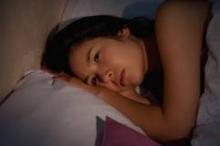LAS VEGAS – Many patients with insomnia reach for certain dietary supplements and herbal preparations for relief, but their efficacies have not been established in well-controlled studies.
"Dietary supplements and herbal preparations not regulated by the FDA [Food and Drug Administration]," Dr. Karl Doghramji said at the annual psychopharmacology update held by the Nevada Psychiatric Association. "There is some question about the purity of these agents, and also about the active ingredient. There are many ingredients in these so-called nutraceutical compounds. Which is the active ingredient? We’re not quite sure."
If clinicians recommend agents whose effectiveness is not well-established, "are we delaying treatment for insomnia and other conditions, which may have a negative impact in daytime performance and may impair mood?" asked Dr. Doghramji, professor of psychiatry, neurology, and medicine at Thomas Jefferson University, Philadelphia. "That’s a concern."
One of the more commonly used natural supplements for insomnia is valerian in a dose of 400-450 mg/day. This herb is believed to have some anxiolytic, muscle relaxant, and sleep-promoting properties, "yet data regarding efficacy are mixed," said Dr. Doghramji, who also directs the university’s Sleep Disorders Center. "Safety data are scant, yet side effects appear to be rare and mild, primarily GI irritation and headache. There are case reports of hepatotoxicity in persons taking herbal products containing valerian."
He described melatonin as the most commonly used natural supplement for insomnia. A review of 139 published studies commissioned by the Agency for Healthcare Research and Quality suggests that melatonin has no effectiveness in the treatment of everyday regular insomnia (AHRQ Publication No. 05-E002-2; 2004). "But, some evidence suggests that it is effective in treating delayed sleep-phase syndrome with short-term use," Dr. Doghramji noted. "On the other hand, evidence suggests that melatonin is not effective in treating most secondary sleep disorders with short-term use, and no evidence suggests that melatonin is effective in alleviating the sleep disturbance aspect of jet lag and shift-work disorder."
Certain prescription agents might benefit patients with insomnia, he continued. FDA nonapproved agents for insomnia include sedating antidepressants, antipsychotics, and anticonvulsants. FDA-approved hypnotics include benzodiazepine-receptor agonists, melatonin-receptor agonists, and H1-receptor antagonists.
"At appropriate doses, sedating antidepressants are effective for mood and anxiety disorders; there is a low abuse risk, low cost, and there is a large dose range," Dr. Doghramji said. "One of the disadvantages is that they tend to be long acting and have anticholinergic and antihistaminic side effects." A 42-day controlled study of doxepin 25-50 mg found that the agent did not produce any change in terms of sleep latency (J. Clin. Psychiatry 2001;62:453-63). However, "it did increase their total sleep time, suggesting that they didn’t necessarily fall asleep more quickly, but they had fewer awakenings after they did fall asleep," he said. "So, if doxepin is to be used for insomnia, it seems to be best suited for the insomnia characterized by middle of the night awakening and late morning insomnia."
A 2-week study that compared trazodone with zolpidem in primary insomnia demonstrated that trazodone did seem to help people fall asleep more quickly in the first week or so (Hum. Psychopharmacol. 1998;13:191-8). "It also helped them feel as though they had slept longer," said Dr. Doghramji, who was not involved with the study. "The problem was, tolerance occurred within 2 weeks. The issue there is, should you increase the dosage or keep the same dosage for a while? We don’t have a lot of data on this."
From a pharmacokinetic standpoint, trazodone has a long half-life (5-12 hours) and features a complex set of pharmacodynamics. "It not only has some serotonergic potential, it has some histaminic potential, making it an agent that can have multiple side effects, so be careful with it," he said.
Clinicians likely use benzodiazepine receptor agonists more than any other agent for insomnia. These include the benzodiazepines, such as estazolam, flurazepam, quazepam, temazepam, and triazolam; and the non-benzodiazepines (also known as selective benzodiazepine receptor agonists) such as zaleplon, zolpidem and its various preparations (oral, sublingual, and oral spray); and eszopiclone. Adverse effects may include daytime sedation, psychomotor and cognitive impairment (depending on dose and half-life), rebound insomnia, and respiratory depression in vulnerable populations. All of these are classified as schedule IV controlled substance by the Drug Enforcement Administration. New drugs, which do not have a DEA schedule classification, include ramelteon, a melatonin receptor-agonist, and low-dose doxepin.
Choosing which antidepressant agent to use for a patient with depression and comorbid insomnia poses a certain clinical dilemma, Dr. Doghramji concluded. "Do you start with a sedating agent when your patient is both depressed and cannot sleep? Or do you put them on any old agent, regardless of whether it’s sedating or not? Unfortunately, at this point, there are not a lot of data guiding us on this."


